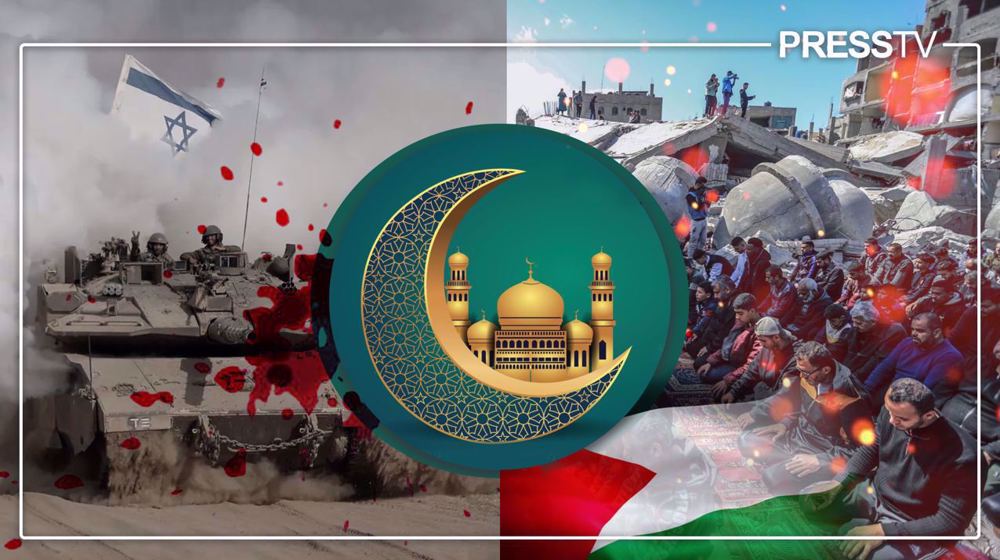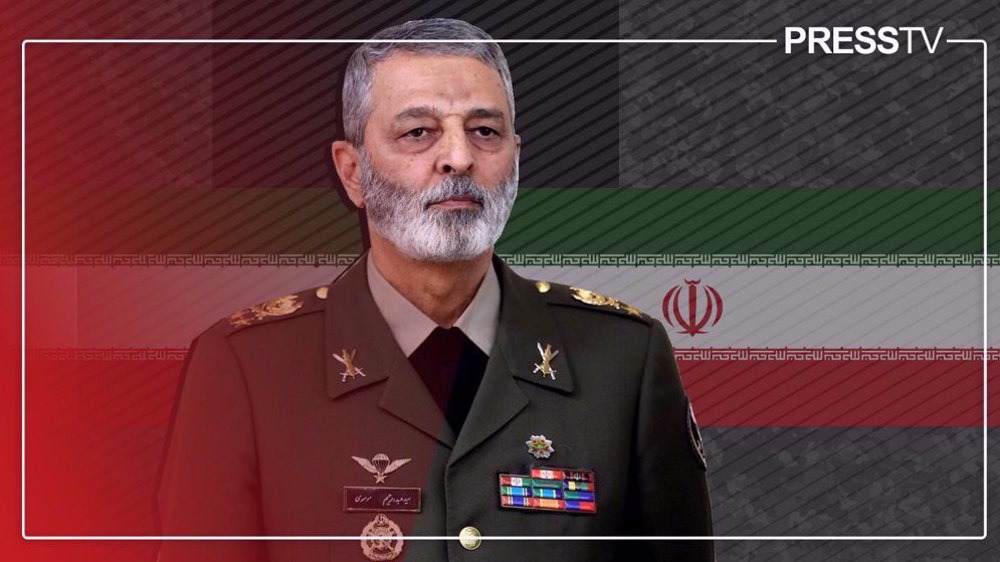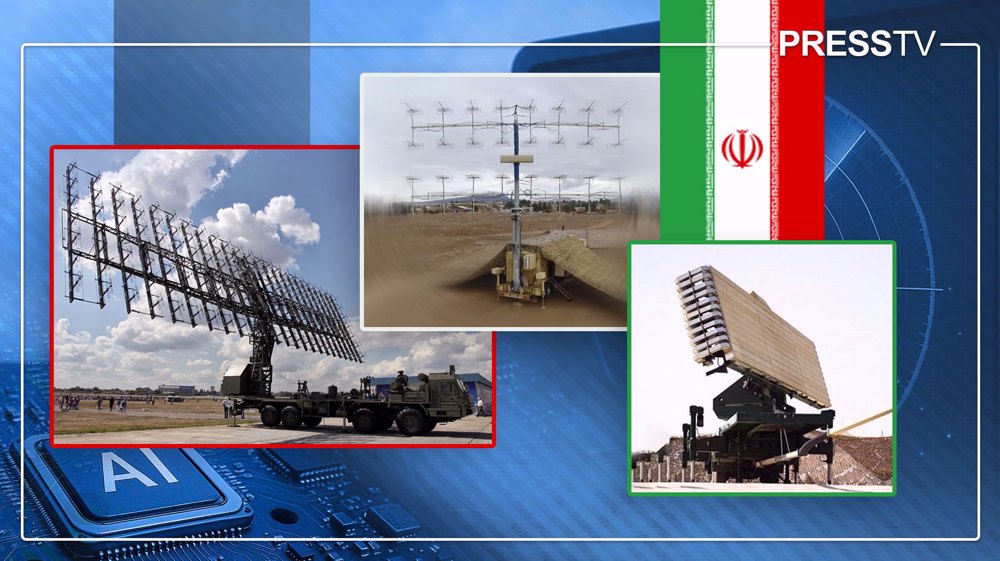Amid genocidal war, Palestinians find solace in the spirit of Ramadan fasting
By Humaira Ahad
In the month of Ramadan,mothers in Gaza would prepare Qatayef, the traditional dessert associated with the month of fasting, its smell spreading through nooks and corners of the neighborhood.
Little children, after breaking their fast,would run around ecstatically, shouting “Ramadan Kareem yahallou”, with their infectious laughter echoing through the narrow and serpentine alleys.
The densely-populated coastal Palestinian territory would wear a festive look with a galaxy of lanterns adorning the crowded streets. Mosques would reverberate with soulful prayers and supplications, adding an aura of spirituality to the joy felt by people.
It's again that time of the year, but now an eerie silence has replaced the trademark hustle and hustle and gloom and doom have taken the place of joy and excitement amid the ongoing genocidal war.
The ghostly stillness is broken by the sound of death. Sirens and bombs are dropped on homes and streets by the Israeli regime. The open-air prison has turned into an open-air graveyard.
Most of the mosques have been reduced to rubble. Fasting, rather than being a spiritual experience,has become a way of life for locals amid crippling siege and starvation.
But the war-weary people of the besieged territory have not abandoned their faith in divine justice.
Ramadan this year is manifesting the indomitable resilience and hope of Palestinians amid the ongoing genocide, now into its sixth month. The people living in desperate conditions in makeshift tents have been demonstrating their unshakable faith in line with the true spirit of Quranic teachings.
Light from traditional lanterns flickers in the tent city of Rafah, a city in southern Gaza, where the full-scale Israeli military invasion seems imminent.
Since the start of the holy month of fasting, Palestinians displaced to the southern part of the strip have put lamps and fairy lights outside their plastic tents. The illumination appears as a flash of festivity and celebration in a scene that is dominated by death and destruction.
Ramadan, which was traditionally the time of joy and family reunions, is now a somber affair.People sit on the ground surrounded by the debris of buildings destroyed by Israeli airstrikes to break their fast.
Many Palestinians had hoped that the holy month would bring much-needed relief from ongoing Israeli bombardments, however, the regime blocked efforts to reach a truce deal.
The occupying entity has been bent on destroying Gaza’s religious and cultural fabric.Its heritage minister Amihai Eliyahu recently called to “wipe out” the month of Ramadan, even suggesting that the regime could use nuclear weapons in the Palestinian territory.
Starvation in Ramadan
Even though UN Secretary-General Antonio Guterres called for “silencing guns” during Ramadan, the Israeli regime has continued its indiscriminate bombings in the holy month across the strip.
Worse, it has been using hunger as a weapon of war against Palestinians in the month of fasting. People have been forced to break their fast with grass, or canned food, if lucky.
“We don’t know what we are going to eat to break the fast,” a displaced Palestinian sheltering in Rafah was quoted as saying earlier this week.
“The situation is appalling. Every minute, every hour, it is getting worse,” the UN agency for Palestinians, UNWRA, said in a tweet on X, earlier this month.
Ramadan spreads have been replaced with bread cooked over wood fires this year. The flour comprises mostly animal feed which is difficult to cook and swallow.
Starvation is worse in the north of the territory where many people have reportedly died due to malnutrition and dehydration in recent months, especially children.
“Days from the beginning of the holy month of Ramadan and with no ceasefire agreement in sight for Gaza, UN humanitarians reiterated deep concerns that a growing number of children are dying of starvation”, the world body said in a statement on March 7.
According to the Health Ministry in Gaza, at least 23 children and 4 adults have died of malnutrition and dehydration at hospitals in northern Gaza. The World Health Organization (WHO) has warned of an “explosion” in child deaths if aid doesn't reach people immediately.
Videos circulated on social media show children in northern Gaza scrabbling through the rubble to find something to eat.
Hundreds of Palestinians have been reportedly killed by the regime’s forces in recent weeks while waiting for food trucks, especially in Kuwait Roundabout in Gaza City.
Praying in ruins
Videos have been doing rounds on the internet showing hundreds of Palestinians offering congregational Ramadan prayers in the ruins of a mosque destroyed by the regime’s airstrikes.
With places of worship turned to rubble, people are unable to find enough space for special nightly prayers during Ramadan. Limited access to water has also made obligatory ablution difficult.
According to local authorities in Gaza, the regime’s bombardment of the strip has destroyed more than 1000 mosques. The blockaded territory had 1,200 mosques before the war started on October 7.
As per the figures given by Gaza’s ministry of religious affairs, more than 100 religious preachers have been killed in the aerial blitz of the occupying regime across the territory.s
Places of worship where people had sought refuge from Israeli bombings were also not spared by the regime. The religious places were targeted by airstrikes,massacring scores of Palestinians.
In November last year Euro-Med Monitor, a Geneva-based human rights organization documented dozens of casualties due to Israeli attacks on mosques.
Targeting the places of worship constitutes a clear violation of international human rights that the regime has been transgressing since the start of its genocidal war on Gaza.
The death toll in the Palestinian territory is close to 32,000 now, almost 70 percent of them children and women, with thousands of others still trapped under the rubble.
In the face of death, destruction and starvation, displaced Palestinians say the effort to preserve Ramadan traditions is driven by their faith in God and the divine justice, which is never denied.
Iran Armed Forces shoot down US F-15 fighter jet near Kuwait border
IRGC, Army launch fresh waves of missile strikes against Israeli, US targets
Red Crescent Society: 555 people killed across Iran in US-Israeli onslaughts
Operational concerns delayed US-Israeli aggression against Iran for a week: Report
Iran slams Israeli attacks on Lebanon, warn UNSC’s inaction to embolden regime
Iran says has ‘no choice’ but to fight back, holds no enmity toward American people
Bahraini police assaults crowds mourning loss of Ayatollah Khamenei
Iran posed no imminent threat to US: Pentagon tells Congress










 This makes it easy to access the Press TV website
This makes it easy to access the Press TV website